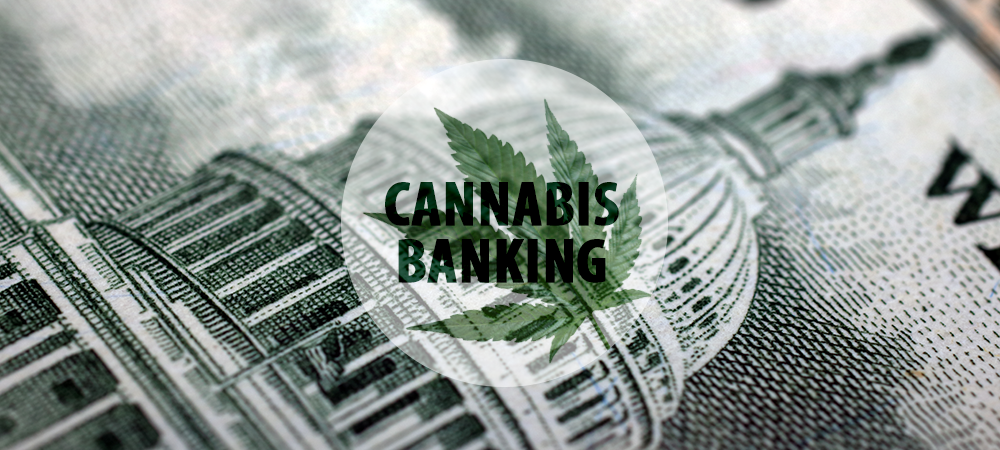Legal Cannabis and Secret Banking.
Even though more and more states are allowing the sale of cannabis at the medical and/or recreational level, it is still a business that deals essentially in cash only. Why? Because most traditional banks refuse to deal with any cannabis businesses. This forces cannabis businesses to seek alternative financial institutions, smaller banks and credit unions that are willing to work with cannabis businesses so that these businesses can pay their expenses and even taxes in a manner more safe and secure than delivering stacks of $20 bills.
It was less than six years ago that Washington and Colorado became the first states to legalize cannabis for recreational use. While a total of nine states and Washington, D.C., have legalized recreational cannabis, and 30 states have legalized it for medical purposes, cannabis companies still operate in a legal grey area because cannabis remains illegal under Federal law. Federal law classifies cannabis as a Schedule 1 drug, meaning it has “currently no accepted medical use”. Treating cannabis no differently than heroin, the Federal government has entrusted the Treasury Department with the authority and responsibility to monitor bank activity to make sure that activities which are illegal under Federal law are not utilizing the banking channels and functions that are normally available.
Financial Crimes Enforcement Network (“FinCEN”).
FinCEN is a bureau of the U.S. Department of the Treasury. The Director of FinCEN is appointed by the Secretary of the Treasury and reports to the Treasury Under-Secretary for Terrorism and Financial Intelligence. FinCEN’s mission is to safeguard the financial system from illicit use and combat money laundering and promote national security through the collection, analysis, and dissemination of financial intelligence and strategic use of financial authorities.
FinCEN carries out its mission by receiving and maintaining financial transactions data; analyzing and disseminating that data for law enforcement purposes; and building global cooperation with counterpart organizations in other countries and with international bodies.
FinCEN exercises regulatory functions primarily under the Currency and Financial Transactions Reporting Act of 1970, as amended by Title III of the USA PATRIOT Act of 2001. Under this authority the Secretary of the Treasury is to issue regulations requiring banks and other financial institutions to take a number of precautions against financial crime, including the establishment of AML programs and the filing of reports that have been determined to have a high degree of usefulness in criminal, tax, and regulatory investigations and proceedings, and certain intelligence and counter-terrorism matters. This authority has been delegated to FinCEN.
The basic concept underlying FinCEN’s core activities is “follow the money.” As FinCEN believes that the primary motive of criminals is financial gain, and they leave financial trails as they try to launder the proceeds of crimes or attempt to spend their ill-gotten profits. FinCEN shares the information it receives and analyzes with other law enforcement agencies to investigate and hold accountable a broad range of criminals, including perpetrators of fraud, tax evaders, and narcotics traffickers. More recently, the techniques used to follow money trails also have been applied to investigating and disrupting terrorist groups, which often depend on financial and other support networks.
Why Banks Are Reluctant To Deal With Cannabis Businesses.
Under the Obama administration, then-Deputy Attorney General James Cole issued a memo, known as the Cole Memorandum, that clarified the Justice Department’s stance on cannabis. The memo, from August 29, 2013, asserted that, for the most part, the Justice Department would not enforce the cannabis ban in states that had legalized it. Following that spirit, on February 14, 2014 the Treasury Department issued its own guidance through FinCEN on how banks could provide services to the cannabis industry without violating Federal Law. As long as banks complied with this guidance, they could avoid the threat of federal prosecution and make themselves available to provide banking and financial services to cannabis businesses.
But under the Trump administration, the Justice Department led by Attorney General Jeff Sessions has rescinded the Cole memo, calling marijuana “a dangerous drug” and asserting that “marijuana activity is a serious crime”. The Treasury Department led by Treasury Secretary Steve Mnuchin has yet to revoke the FinCEN guidance which although that guidance referenced the Cole memo multiple times, the guidance still remains a part of the framework by which banks and other financial institutions can make themselves available to do business with the cannabis industry.
Today’s Banking Challenge.
Even as more states legalize cannabis, a tiny fraction of banks and alternative financial institutions are willing to work with cannabis companies. These companies are not well-known and most do not advertise their services to the world. So it is best to be proactive and engage an experienced board certified tax attorney-CPA in your area who is highly skilled in the different legal and tax issues that cannabis businesses face. Let the tax attorneys of the Law Offices of Jeffrey B. Kahn, P.C. located in Orange County (Irvine), the Inland Empire (including Ontario and Palm Springs) and other California locations protect you and maximize your net profits.


